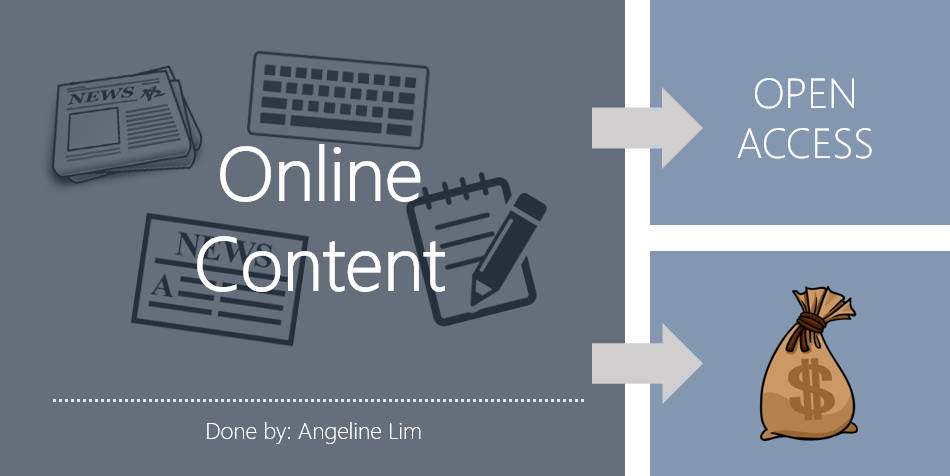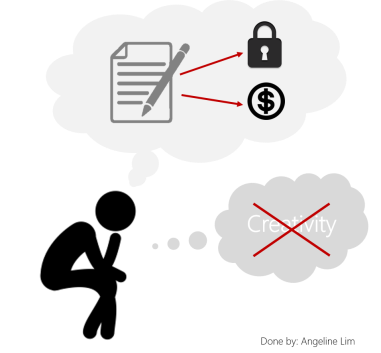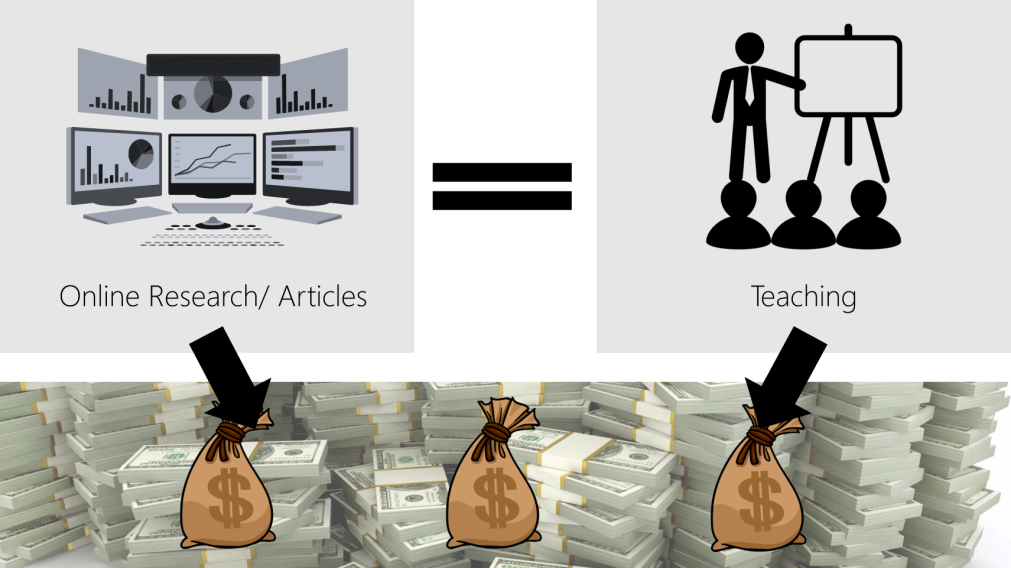Online tools enabled everyone to attain all the information and resources that we desire. Imagine having all these data locked up and restricted, would that be a desirable outcome for the content producers?
Open Access (OA) refers to free, immediate and online availability of research articles with the rights to use these articles fully in the digital environment.
From a content producer perspective – would you opt for free or paid content?

Advantages
Freely accessible information allows work to be more widely read and discussed, gaining greater public engagement. For example, this Scientific Reports paper was accessed over a quarter of a million times just in the first month of publication!
Collaboration is enabled based on a global scale with materials read and built on by anyone. With price barriers locking articles, science cannot achieve its full potential.

Studies also showed that OA work is viewed and cited more often than paid articles. Simply look at our blog posts, the majority of us (or even all of us!) cite OA articles and resources to our writings.
Disadvantages
Professor Robin thinks otherwise – there should not be free access to academic research! He relates it to the process of teaching which comes with a fee. He argues that accessibility focuses on no charge rather than making oneself widely understood. In a way, the quality of work does reduce without financial rewards.

It might also drive readers away as they are able to find similar content elsewhere for free. I do online research widely, and if I do chance upon any article that requires a subscription fee or any form of payment, I would simply exit the window to search for another resource.
‘Much more will be downloaded, much less will be understood’ – how true is this? The vast online world made attaining of information increasingly easy, accessible, and free.
Conclusion
I would see it as – what is more motivating for a content producer? Would it be to receive a revenue for the content produced; or to gain personal recognition?
Our previous module introduced the concept of motivation and I felt that it is somewhat applicable in this case. According to Herzberg’s motivation theory, personal achievement and recognition are what that truly motivates one. Having said that, OA increases visibility, usage and impact for one’s work, ultimately allowing one to gain recognition.
Some may argue that ethical issues arise as not everyone is a responsible online user who makes the efforts to credit the work of others.
How would you see it?
(415 words)
References:
YouTube. (2016). Open Access. [online] Available at: https://youtu.be/B579LlMi0Q4 [Accessed 15 Nov. 2016].
The Drum. (2016). 90% of online content to be held behind paywalls in three years media company survey suggests. [online] Available at: http://www.thedrum.com/news/2013/04/12/90-online-content-be-held-behind-paywalls-three-years-media-company-survey-suggests [Accessed 15 Nov. 2016].
Wiley, D., Green, C. and Soares, L. (2016). Dramatically Bringing down the Cost of Education with OER: How Open Education Resources Unlock the Door to Free Learning.. [online] Eric.ed.gov. Available at: http://eric.ed.gov/?id=ED535639 [Accessed 15 Nov. 2016].
Forbes.com. (2016). Forbes Welcome. [online] Available at: http://www.forbes.com/sites/skollworldforum/2013/04/07/education-finally-ripe-for-radical-innovation-by-social-entrepreneurs/#7d8a76877a55 [Accessed 15 Nov. 2016].
HowStuffWorks. (2016). How Paywalls Work. [online] Available at: http://computer.howstuffworks.com/paywall2.htm [Accessed 15 Nov. 2016].
Nature.com. (2016). Benefits for authors : Open Research. [online] Available at: http://www.nature.com/openresearch/about-open-access/benefits-for-authors/ [Accessed 15 Nov. 2016].
SPARC. (2016). Open Access – SPARC. [online] Available at: http://sparcopen.org/open-access/ [Accessed 15 Nov. 2016].
Righttoresearch.org. (2016). Why Open Access? (Right to Research Coalition). [online] Available at: http://www.righttoresearch.org/learn/whyOA/index.shtml#Researchers [Accessed 15 Nov. 2016].
Edanzediting.com. (2016). Advantages and Disadvantages of Open Access | Edanz Editing. [online] Available at: https://www.edanzediting.com/blogs/advantages-and-disadvantages-of-open-access [Accessed 15 Nov. 2016].
the Guardian. (2016). Why open access makes no sense. [online] Available at: https://www.theguardian.com/higher-education-network/blog/2013/jul/08/open-access-makes-no-sense [Accessed 15 Nov. 2016].
Hi Angeline 🙂
I find it interesting linking motivation to this topic! Your question regarding money versus recognition has led me to think seriously. I feel recognition is more important to me. My logic is; if I am widely recognised by everyone in my industry, wouldn’t I have a higher chance of being head-hunted? Possibly landing myself in a well-paid job that was due to my recognition and reputation.
I can relate to Professor Robin’s view but I do not agree completely. He compares teaching with OA materials which I think isn’t a fair comparison. Teaching “is imparting knowledge/skill” and “undertaking certain ethical tasks/activities the intention of which is to induce learning”. The act of teaching can’t be found in just simply reading up OA materials. In my opinion, these two are distinctly different. Do you think this is a reasonable argument? Would like to know what are your thoughts!
LikeLike
Reference: http://www2.phy.ilstu.edu/pte/310content/teachlearn/teaching_learning.ppt
LikeLike
Exact sentiments! With greater exposure, it increases the opportunity of being head-hunted. Just like the example you gave on your blog. Without the increased visibility, it’s rather difficult to be receive recognition, isn’t it?
Hmm. Indeed, we can’t simply relate reading OA materials to teaching. Teaching probably involves more responsibilities and clarity as compared to OA. By that relation, schools can simply provide online materials, asking for charges. Haha!
LikeLike